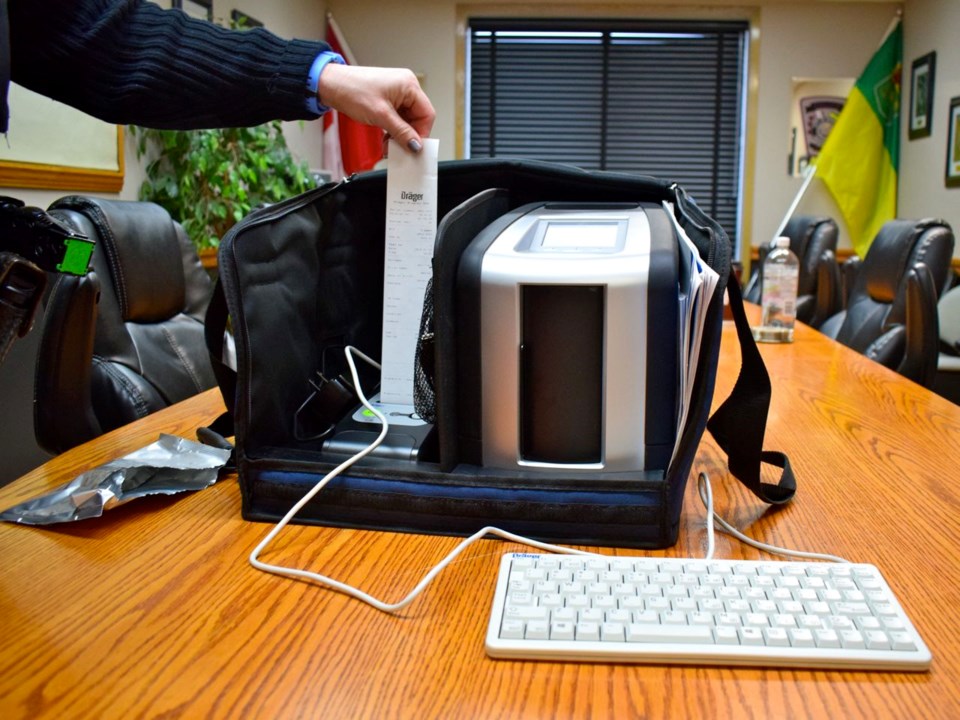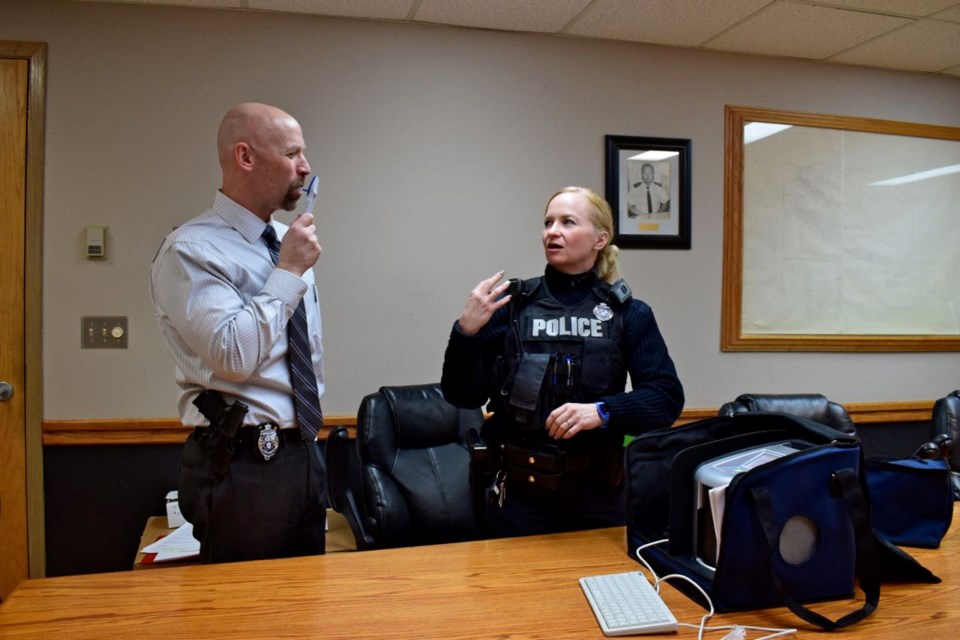After receiving special training in Ottawa, Estevan Police Service Constable Deanna Conquergood is now fully equipped to detect drivers impaired by marijuana or cocaine.
“The training enhances more of my knowledge about impaired by drugs driving. It gave me more tools to use to try to prevent and try to detect drivers who are impaired by drugs,” Conquergood said.
With the new equipment now in place in Estevan, it is much easier for police officers to determine if drivers were using cannabis or cocaine prior to driving.
“I got trained on how to use the oral fluids screening device. The device itself tests for THC, which is the impairing component in marijuana. It also does test for cocaine,” Conquergood said.
The new testing device is portable, yet quite fragile and finicky.
“This particular device we can take it with us on the road. Unfortunately, it is a little cumbersome. It has to be maintained in a temperature controlled setting. It can’t be below 5C, and it can’t be above 40C,” Conquergood explained. “For instance, in our winter condition that we have now if it gets exposed to extreme temperatures like that, we have to make sure we get it back in into controlled setting and give it time to adjust to the temperature before we can do a test on it.”
That means that the suspect would have to come back to the police station as well.
The gadget will read positive for anything over 25 nanograms (ng) of THC per ml of blood, with it being considered an offence to have over 2 ng/ml of THC. If a suspected impaired driver tests positive on the oral fluid screening device, the following urine test will be positive for THC as well.
Any level of cocaine in the blood is considered an offence. The use of either cannabis or cocaine restricts people from driving.
“It’s another tool in my arsenal to help combat the problem we have here for impaired driving,” Conquergood said.
Suspicious driving is one of the main reasons to check the person behind the steering wheel for impairment. Estevan police are also planning on using the new screening device for regular roadside check stops.
If suspected of being drug impaired a driver would be asked to provide an oral fluids sample. There are special one-time-use cotton swabs to be used for testing.
“(The person would need to) rub a cotton swab on cheeks, on gums, under and over the tongue. We will know that there is enough fluid there when a blue line shows up. It takes probably 30 seconds to get enough liquid,” Conquergood explained.
The oral fluids screening deviceOnce the sample is introduced to the machine, it takes two to three minutes to determine if there are THC or cocaine traces.

“When we do a test with it, it will give us either a negative or a positive for THC or cocaine. It won’t give us the actual levels of the drug in a person’s blood system,” Conquergood said.
In this manner, the new device gives the police more grounds to believe that there is a drug in a driver’s system. If the results of the test come back positive for any of the two substances, officers arrest the suspect for impaired by drug driving and take the person to the station to do further investigation.
People can decline to do a swab, but just like declining to do an alcohol-screening test they will be charged for refusing to provide a sample.
Same with alcohol, penalties for impaired driving range from a mandatory minimum fine to a life sentence, if it results in an impaired driving-related collision.
The device is already being used, yet the Estevan police plan on providing more testing on live subjects in the upcoming month.
“I hate to say ’we’ll be looking for volunteers to smoke marijuana,’ but we will. Down the road we will be looking to test a few live subjects, that’s a part of our training as well,” said Estevan Police Service Chief Paul Ladouceur.
This testing will be done to put drug recognition experts (DRE) and Standardized Field Sobriety Testing (SFST) specialists through the paces and to give them the experience of doing some tests on people.
There will be rides arranged to transport volunteers home safely.
With a growing number of trained officers, the new drug-testing device being distributed and used by police all across Canada now, and with new legislation that took away the reasonable suspicion component, the chances to get away with driving high or drunk nowadays are looking very slim.



